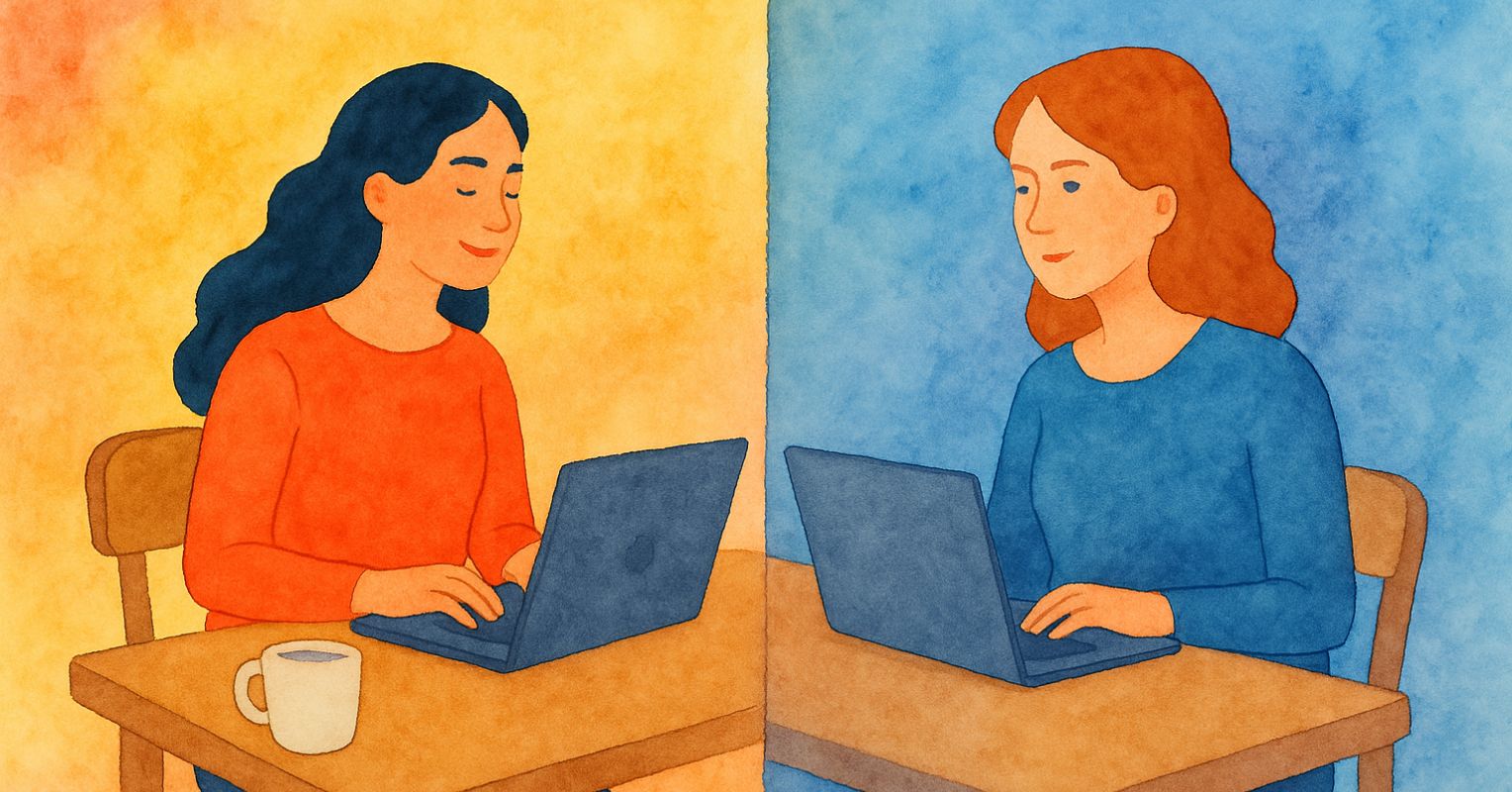
Back in April 2020, grad‑school life took an unexpected turn for one of my classmates. Our campus office—complete with a judgmental officemate who would give her the side-eye whenever she had late-night shows playing on her screen—was suddenly off‑limits. At home, the temptations multiplied: an actual TV (goodbye, “just one” clip), laundry piles begging for attention, a couch that whispered nap time. The usual guardrails that kept her productive were gone.
So I helped her build her own.
Each morning, we joined a Zoom together, stated our goals, hit mute, and left our cameras on. After an hour, we’d unmute for a two‑minute “water‑cooler” chat, and then dive back in. I couldn’t see her screen, but my silent presence was enough to keep her glued to her work instead of cat videos. And I was extra productive during those sessions, too.
This simple tactic—known in ADHD circles as body doubling—sits at the heart of two ideas I study:
- Design beats willpower.
Changing your environment (even just virtually) often works better than trying to summon heroic self‑discipline. - One quirk of our psychology can fix another.
We’re hypersensitive to the presence of others and, of course, what other people think of us. Body doubling turns that built‑in spotlight into motivation, which we can leverage to drown out our equally human urge to procrastinate.
“But shouldn’t I be able to power through on my own?” Maybe in an economics textbook. In real life, we get distracted, bored, and tempted. Instead of berating ourselves for being “weak,” we can lean on a tool that’s been hiding in plain sight: another person’s presence.
How to try it:
- Find a buddy. Friends, classmates, coworkers—anyone with work to do.
- Set a timer. Commit to 30- to 90‑minute sprints; break for quick chats in between.
- Keep cameras on and mics off. Seeing each other matters more than hearing.
- Share goals up front. A tiny dose of accountability goes a long way.
- Repeat as needed. The habit forms fast—because it feels good to finish tasks.
Body doubling won’t write your novel or crunch your spreadsheets for you, but it makes showing up and staying on task easier. So the next time you catch yourself hovering over the “Play Next Episode” button, invite a friend to a silent Zoom. Let the human desire to save face do the heavy lifting, and watch your to‑do list shrink.
